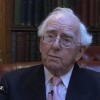
In previous posts I have told how exciting it was when the ‘pioneers’ of hospice/palliative care realised that, much as they thought they were introducing something new to patient care, they were in fact pleading for recognition and acceptance of the most basic, undeniable, ages-old features of compassionate care.
Cynics described that as ‘reinventing the wheel’, others more generously as ‘re-discovering’. Nationwide we were struck by the fact that many medical colleagues sat on the fence, neither welcoming palliative medicine or condemning it. It was as if they wanted to observe from the touch lines. Until one of their family needed palliative care. From them on they were the most enthusiastic advocates.
Liberation
Recently I heard the hospice/palliative care movement described by a retired physician (not in the field) as a ‘liberation’. I asked what he meant and this was his response:
Before we ever heard of hospice care we avoided all use of words related to death and dying, not only with patients and their relatives, but between ourselves as clinicians, in all our teaching whether at the bedside or in the tutorial room. There was no quiet, discrete planning of care and support when death was imminent, few planned meetings with close relatives, no support offered to juniors, only occasional phoning of GPs who usually knew the patients and families much better than we ever did. It was as if death was unexpected and signified a professional failure. Any discussion after the event was always confined to whether we had been energetic enough, what more we could have done. I don’t recall us ever reviewing the quality of pain and symptom relief we had offered, how we had talked to and tried to help grieving relatives or what we would hope to do better with the next patient who (forgive me using the expression so often used in my unit) “fell off the perch!” Hospice and palliative care came along and, almost overnight, we were not only free to speak of dying and death, grief and loss – it felt the right thing to do. I felt liberated, free to use the taboo words, not only free to talk about it all but needing to do so as an undeniable part of my life, my work, my role.
The message for others
However this is not a ‘lived happily ever after’ story. If others believe, as I still do, that palliative/hospice care is no more, no less than good, compassionate, patient-centred care, whatever the pathology, wherever that care is being given – it begs a question. Is that what we are teaching medical and nursing students or do we still focus more on the pharmacology of the opioids and steroids? Are we courageous enough to talk about spiritual needs? Do we explain to our students the thrills and rewards of our work and how we, caring professionals, try to cope with the undeniable stresses.
I suppose what I am asking is are prepared to be different – eager to practise evidence-based medicine, of course, but still prepared to talk about the immeasurable at the heart of palliative care: love and compassion, religious faith and prayer, touch and the effects of music, miracles, the meaning of life.
Looking at what is happening today, of necessity from a distance because of my antiquity, I am thrilled that so many patients now have better pain control than many referred to us; that advice is often sought by young doctors given permission to do so by consultants, and that excellent scientific research is appearing in ‘our’ journals (but rarely in other journals). But I remain anxious lest we become just another specialty. We have made a difference to medical practise. Are we still prepared to be a little bit different as we were thought to be in the ‘old days’?

